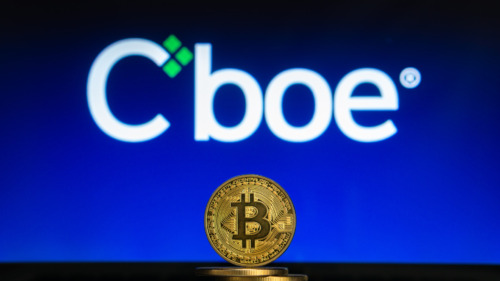Tokenised RWAs: The Next-Gen ETFs Opening Private Markets to All

- Christopher Perkins, President of crypto investment firm CoinFund, believes tokenised assets could revolutionise retail investor access to private markets.
- Perkins compared the potential impact of tokenised assets to ETFs, saying they could allow regular investors to gain early exposure to highly innovative private companies.
- Perkins has also called on the SEC to approach the regulation of tokenised assets much like how it approached the regulation of ETFs in the 1990s, including by “taking into account the capabilities of blockchain technology.”
Christopher Perkins, the President of cryptocurrency investment firm CoinFund, has argued that real-world asset tokenisation could revolutionise financial markets, comparing their potential impact to the introduction of exchange-traded funds (ETFs) in the early 90s.
“I believe tokens are the new ETFs,” he told Cointelegraph in an interview published July 14.
When ETFs first hit US exchanges back in 1993, they allowed regular investors to easily access more sophisticated financial instruments which had previously largely been the domain of professional investors. Perkins believes tokenisation could do something similar with private markets.
Ordinary people cannot access private markets. They’re private by their nature. And if you look in the US today, about 81% of companies — this is a BlackRock stat — with $100 million in revenue are private.
 Christopher Perkins, CoinFund President
Christopher Perkins, CoinFund President “Essentially, that leaves ordinary people, normal people, very little access to what are the most exciting, the most innovative companies,” he said.
Tokenisation could change this, according to Perkins, largely by reducing the knowledge gap between institutional and retail investors. The CoinFund President said tokenised real-world assets “reduce the information asymmetry that has typically kept retail investors out of private placements under existing accreditation laws.”
Perkins believes this democratisation of access to private markets is crucial because fewer and fewer companies are going public these days. He said the number of publicly listed companies in the US has been trending down for decades, with the figure now only about 50% of what it was in the 1990s.
“Our public markets are completely broken right now. The system is not working as it was designed. The number of public companies is decreasing materially,” Perkins said.
“We are raising less money in public markets, which makes zero sense,” he added.
Related: Matt Hougan: Tokenisation – Wall Street’s Next Trillion-Dollar Revolution
Comments Come After SEC Statement On Tokenisation
Perkins’ comments come after Securities and Exchange Commission (SEC) Commissioner and head of the regulator’s crypto taskforce, Hester Peirce, warned market participants in a statement that merely tokenising an asset doesn’t change its nature or exempt it from securities laws.
As powerful as blockchain technology is, it does not have magical abilities to transform the nature of the underlying asset. Tokenized securities are still securities. Accordingly, market participants must consider—and adhere to—the federal securities laws when transacting in these instruments.
 Hester Peirce, Head of the SEC’s Crypto Taskforce
Hester Peirce, Head of the SEC’s Crypto Taskforce Perkins took to X / Twitter to respond to Peirce’s warning, saying that there’s nothing illegal about tokenised stocks: “Tokenized stocks are not illegal. They are stocks/equities.”
“Derivatives on single company issuers aren’t illegal either,” Perkins continued, adding that “they are security-based swaps.”
Yes, there are rules for issuance, sale and trading of these products that must be followed. This is no different than commodity derivatives. The rules are very clear…and have been for a long time.
 Christopher Perkins, CoinFund President
Christopher Perkins, CoinFund President Related: SEC’s Hester Peirce: “Tokenisation Isn’t Magic—Tokenised Shares Remain Securities”
The CoinFund President also took the opportunity to encourage the SEC to look at the regulation of tokenised assets similarly to how it approached EFTs in the 1990s:
“The SEC has the opportunity to approach tokenization like it did ETFs in the 1990s. They can revisit rules and deliver on the PRINCIPLES of those rules (eg investor protections) taking into account the capabilities of blockchain technology. They have plenty of tools at their disposal, from rule making to exemptive relief.”






